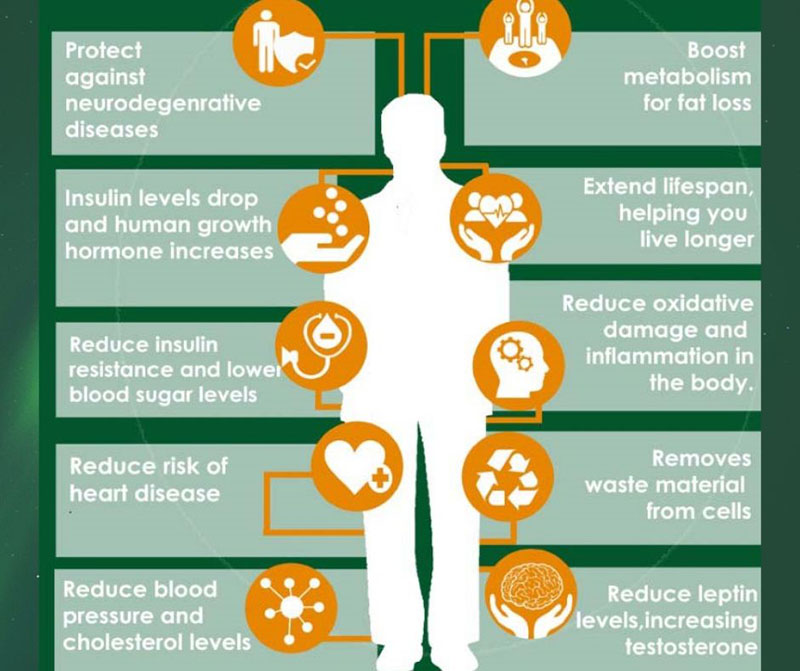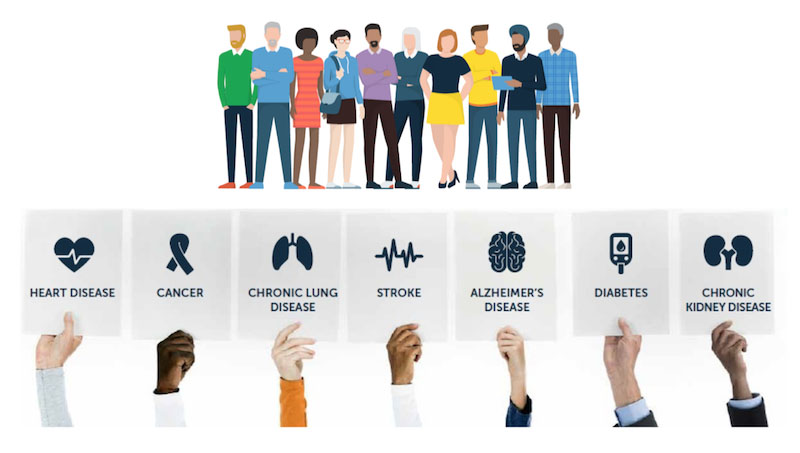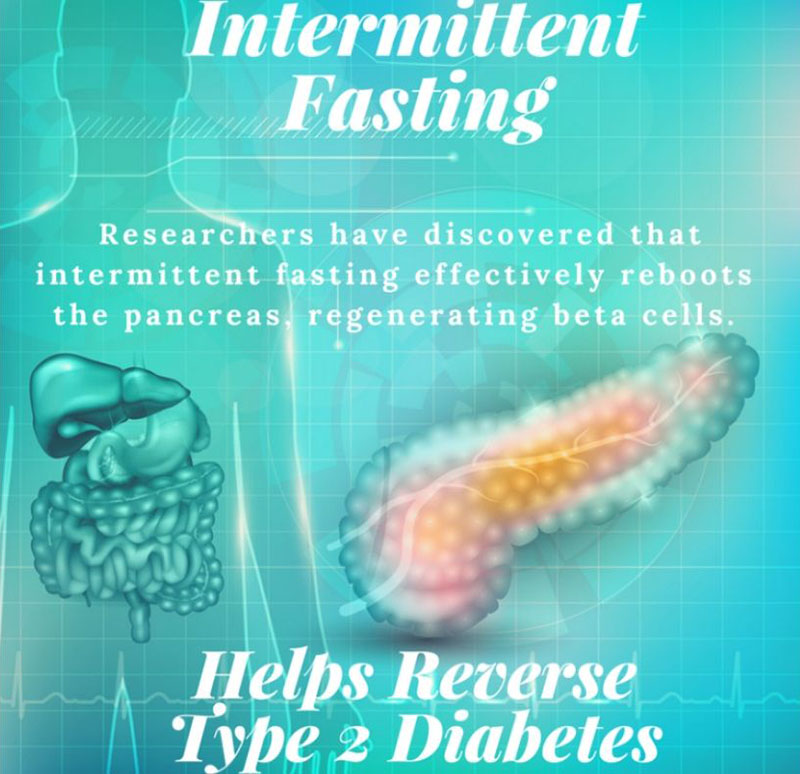Have You Tried Intermittent Fasting? Know Its Benefits & Side Effects On Health

Intermittent fasting has already set the trend in recent years & popularly known as 16:8 fasting. The main reason behind its popularity is the weight loss agenda. Many people think that it is the best way to lose weight or reduces belly fat. Yes! there are some benefits, for example, it enhances metabolic health and slows down the aging process. But many people are not aware of what this intermittent fasting is? Does it help in weight loss? And one common question arises is that, is it good for health? Are there some hidden side effects of intermittent fasting? What can I eat during intermittent fasting? Don’t worry and have patience, we have answers to all your questions.
So, today in our health blog we will learn about intermittent fasting and know its health benefits and side effects. Let’s begin!!
Intermittent Fasting
Intermittent fasting involves alternate cycles of fasting and eating. In this process of fasting, you have to follow a certain eating pattern such as you have to fast for 16 hours a day and consume all calories in the remaining 8 hours of the day. That why this kind of fasting is popularly known as the 16:8 diet plan.
In technical terms, intermittent fasting or intermittent energy restriction is defined as the process of eating numerous meals as per timing and schedules between fasting and non-fasting period.
In simple terms, all you need to do is stop eating certain hours.
Every method of intermittent fasting can be effective, but figuring out which one works best depends on the individual. Similarly, there is another alternative method of fasting which includes a 5:2 diet plan. This kind of intermittent fasting involves eating normally meal five days of a week to a normal meal and then restricting the diet to calories of 500- 600 per day.
Health Benefits Of Intermittent Fasting
As intermittent fasting is a time-restricted diet plan thus it comes with a lot of benefits. Thus, it is essential to know what to expect before you start new eating habits.

1. Helps In Weight Loss
Yes, eating during a defined time indeed helps in reducing the number of calories that they consumed. Reducing your calorie intake can help you lose weight, but it also causes several changes to the way your body stores and burns fat. It lowers cholesterol and blood pressure, kinds of fat present in the blood associated with heart disease. And thus it also helps in boosting metabolism. A recent study shows that intermittent fasting leads to greater loss in weight and as well as in fat. Reducing your calorie intake can help you lose weight, but it also causes several changes to the way your body stores and burns fat.
Also Read: Find The Weight Loss Plan That Works For You
2. Improves Digestive Health
Reports have shown that many people who are on intermittent fasting noticed gut health improvement. Fasting gives your digestive system a chance to reset and rest for some hours. Your stomach doesn’t have to deal with improper eating effects like gas, diarrhea and bloating. By intermittent fasting, you let the gut microbiome refresh, which in turn improves your overall digestive health.
3. Prevents Chronic Diseases
Intermittent fasting prevents us from the risk of chronic diseases like diabetes, asthma, LDC and improves inflammation. Inflammation helps our bodies battle various chronic diseases like cancer and inflammatory bowel diseases. Many pieces of research have shown evidence that the fasting body produces a fewer subset of monocytes, a kind of blood cell, that is known to damage tissue and trigger inflammation.

Fasting intermittently may help people live longer and stay healthier. Besides this, seasonal allergies, heart arrhythmias and menopausal hot flashes can be reduced by this kind of fasting.
4. Boost Heart Health
Intermittent fasting boosts cardiovascular health by lowering BP, cholesterol and triglycerides, all are the type of fats associated with heart diseases. You can reduce your risk for heart disease by following a healthy lifestyle such as eating right, exercising, not smoking, and limiting alcohol intake. If you restrict calories every day, it improves cardiovascular risk, glycemic control, and insulin resistance.
5. Helpful For Diabetes Prevention
Intermittent fasting may also have benefits for diabetes prevention, as it can help weight loss and potentially influence other factors linked to an increased risk of diabetes. It significantly reduces insulin levels and improves insulin sensitivity resistance. The 16:8 intermittent fasting diet is not suitable for people with type 1 diabetes.

Being overweight or obese is one of the main risk factors for developing type 2 diabetes. Thus its interlinked process like you go for intermittent fasting, weight loss happens, it improves metabolism, reduces insulin level and simultaneously reduces the risk of type 2 diabetes. I think now you are clear!
Also Read: Diabetes-Friendly Diet: Foods That Control Blood Sugar
6. Boost Energy & Fight Depression
When you start the intermittent fasting your, you feel dizzy, depressed and also your energy levels might be low because you’re not getting the proper nutrients that you need. When your body gets used to this type of fasting, your energy levels will boost suddenly. Your body becomes more efficient by boosted energy and which helps improve your mood, mental ability and long term performance. As your mood gets better, then ultimately your depression and anxiety will reduce.
Side Effects On Health
Have you ever wondered, is intermittent fasting safe? Intermittent fasting is one of many tools that can help you achieve your health goals when done correctly and safely. But, intermittent fasting has some risks and side effects as well, it is not for everyone. Some of the side effects are mentioned below:
- People experience hunger pangs during the start of fasting as our body lack glucose intake.
- Sudden mood swings, fatigue, dizziness and weakness are common symptoms.
- Whenever you are on intermittent fasting, you feel a slight faint, weakness and headache.
- Overeating or eating unhealthful foods during the 8-hour eating window due to excessive hunger.
- Heartburn or reflux as a result of overeating.

People who should avoid intermittent fasting:
- Individuals with a history of disordered eating.
- People who have a history of depression and anxiety.
- People with type 1 diabetes.
- Women who are pregnant or breastfeeding.
Also Read: Losing Weight With Protein-Rich Diet Can Give You Better Sleep
Tips For Intermittent Fasting
Many of you are not aware of food and drinks which are necessary for fasting. During a fast, you can drink water and other calorie-free beverages, for instance, tea or black coffee. People also try bone soup which contains nutrients that support your body during a fast. But if you are vegetarian go for mix vegetable soup or tomato soup. Taking a liquid diet will help you counteract fatigue and curb hunger.
Intermittent fasting is all about restricting calorie intake so you should follow a low calorie, high protein and high fiber food diet, that will help you stay full.
At last, by concluding we can say that always consult your doctor or dietician before following any intermittent fasting techniques. If your doctor says intermittent fasting is safe for you then only go for it. Doctors and dietician can guide you with the foods that will provide the energy your body needs during fast. If you want to achieve your fitness goal then follow a healthy diet and do proper exercise.









